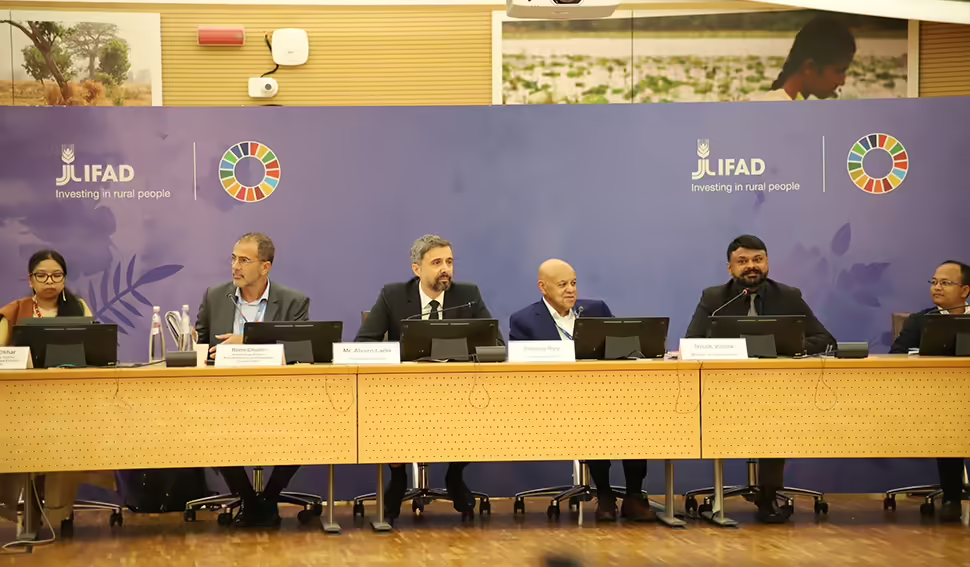FAO’s TAPE assessment unveils benefits of Indigenous Food Systems at Rome Gathering
The 2024 Rome Gathering on the assessment of Indigenous Peoples’ Food Systems (IPFS) was held on October 10 at UN-IFAD Headquarters in Rome. It unveiled an assessment using FAO’s Tool for Agroecology Performance Evaluation (TAPE), along with a creative storytelling approach, to provide evidence of the benefits of IPFS for people, nature, and climate. The assessment involved 500 households across four countries and three continents in 16 landscapes, showcasing the performance and resilience of Indigenous Peoples’ food systems.
The gathering was attended by Ambassadors and Permanent Representatives to UN Agencies from India, Mexico, Canada, and Finland, along with representatives from global networks such as the School Meals Coalition, Agroecology Coalition, and REGEN10. Alvaro Lario, President of IFAD, opened the event by emphasizing the urgency of transforming unsustainable food systems, stating that Indigenous Peoples’ Food Systems are deeply rooted in traditional knowledge, aligning with both environmental and societal needs.
The delegation from North East India included Dhrupad Choudhury, Ecologist and TIP’s Advisor; Pius Ranee, Executive Director of NESFAS; George B. Lyngdoh, Senior Consultant at NESFAS; and Gratia Dkhar, Senior Associate at NESFAS and coordinator of the TAPE study. The assessment, coordinated by young Indigenous professionals, was a remarkable demonstration of their capacity to lead complex research efforts, supported by technical experts from FAO and universities in Thailand and Mexico.
Presenting the survey results, Gratia Dkhar highlighted how IPFS excel in promoting biodiversity, cultural values, and responsible governance. She emphasized that these systems have the potential to enhance dietary diversity, soil health, and youth and women’s empowerment. However, she also criticized the neglect of rainfed agriculture by research and policy, stressing that IPFS offer a unique opportunity to shift toward more nature-based food systems that benefit people, nature, and climate resilience.

The assessment results were complemented by a participatory storytelling approach, with 30 stories gathered from the four countries. These stories underscored that Indigenous Peoples’ food systems are bio-centric, designed for all life, and rooted in local governance and shared values. Dhrupad Choudhury, in presenting the Outcome Framework, stressed the importance of integrating indigenous knowledge with scientific approaches to build resilient, sustainable food systems.
Summarizing the gathering, Phrang Roy, Coordinator of TIP, reemphasized the need for proactive action by Indigenous communities and greater recognition of their food systems’ contribution to social justice, local solutions, and sustainable governance. Following the event, a reception featured Indigenous-inspired finger food curated by Chef Thomas Zacharias of “The Locavore,” Mumbai.



Leave a Reply